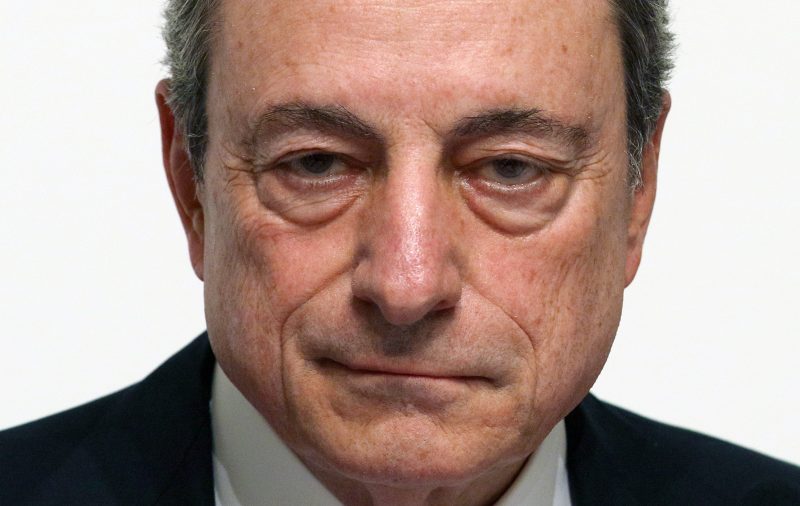ECB’s Draghi urges ‘faster’ move to shared eurozone budget
European Central Bank chief Mario Draghi has urged eurozone governments to hurry up on creating a joint budget (Stringer)
Frankfurt am Main (AFP) – Eurozone governments should move “faster” towards a joint budget that could help smooth economic shocks and support price stability in the single currency bloc, European Central Bank chief Mario Draghi said Tuesday.
“The more integrated our economies become, the faster should be… the transition from a rules-based system for fiscal policies to an institution-based fiscal capacity,” Draghi told a central banking forum in Sintra, Portugal.
“Work on a common fiscal stabilisation instrument of adequate size and design should proceed with broader scope and renewed determination,” he added.
More broadly, Draghi judged that the Frankfurt institution had been too central to the eurozone’s battle to stabilise itself, saying governments should do more with the budgetary space they have available now.
“Monetary policy can always achieve its objective alone, but… it can do so faster and with fewer side effects if fiscal policies are aligned with it,” he said.
The ECB president’s comments come as the bank appears to be flagging in its years-long battle against anaemic growth and low inflation in the 19-nation eurozone.
Central bankers have insisted in recent weeks that they have a full box of tools to bring price growth back towards its target of just below two percent.
But market expectations of future inflation have continued to fall.
“We are committed, and are not resigned to having a low rate of inflation forever or even for now,” Draghi said.
“In the absence of improvement…. additional stimulus will be required.”
Options for the Frankfurt institution include lowering interest rates still further from current historic lows and restarting “quantitative easing” purchases of government and corporate debt.
Meanwhile, in contrast to Draghi’s call for faster work on a joint budget, eurozone finance ministers made only inching progress at a meeting on Friday.
While they agreed on its creation, they burdened it with the cumbersome name of “Budgetary Instrument for Competitiveness and Convergence” or BICC, and failed to decide how it should be funded.
Two European sources mentioned a comparatively tiny budget of 17 billion euros ($19 billion), spread over seven years between the 19 countries that use the single currency.
The spending will be limited to pre-approved investments and structural reforms, rather than helping boost economies during a downturn — the original demand of budget backers such as French President Emmanuel Macron.
Wealthier, more fiscally conservative member states like Germany or the Netherlands are reluctant to move forward, fearing permanent fiscal transfers towards countries like Italy, Greece and Spain.
Disclaimer: Validity of the above story is for 7 Days from original date of publishing. Source: AFP.


